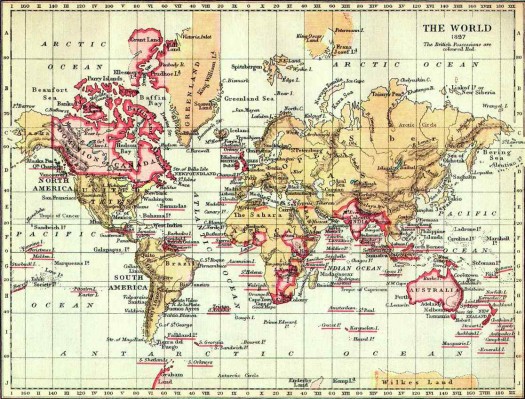Why can't I buy your book in [name of non-US country]?
 Over the past couple of years I’ve regularly gotten questions like these:
Over the past couple of years I’ve regularly gotten questions like these:
- Why can’t I buy your book in [name of non-US country]?
- Why isn’t your book available as an ebook in [name of non-US country]?
It’s happened enough now that I’ve decided I should write this blog post about it for the future. Be prepared: the answer is long, complicated, and messy, but I do have a short version for you if you don’t want to get into the nitty gritty.
SHORT ANSWER
It’s complicated, and it involves a bunch of technical publishing details that I have little to no control over. I’m sorry you can’t buy my books easily in your country; I really wish you could. The only solution I can suggest is to order physical copies from a local bookseller who’s willing to order them in from the US, or to order from a US bookseller who will ship internationally.
LONG ANSWER
The reasons for why my books aren’t easily available around the globe involve English language territories and foreign translation rights. ((A lot of this stuff falls under the the category of subsidiary rights, which is publishing jargon for rights the publisher buys from the author, including but not limited to film rights, audiobook rights, and the right to translate it into foreign language. Here’s a post on why authors and publishers negotiate over subsidiary rights.)) You may think, Wait! What about ebooks? They’re virtual; they don’t need to be shipped anywhere! But ebooks come with a host of other complications.
Let’s take these issues one by one.
(1) English Language Territories
The English-speaking world has been divided into two halves by the United States and the United Kingdom. This is totally a legacy of colonialism, because book publishing has just existed for that long. The division goes like this:
- North America — the United States and its territories and possessions (including the Philippines), and Canada ((Sometimes Canadian rights will be pulled out on their own; for example I’ve known Canadian authors to sell Canadian rights separately.))
- United Kingdom and its former colonies, including Australia and New Zealand ((Sometimes, Australian rights can be pulled out on their own as well.))
Let’s say an author named Jane Wong offers her book (via her agent) to a big publisher named Books Forever, Inc. (BFI), which is part of a giant conglomerate that publishes books not only in the US, but in the UK, France, and Germany, among other countries. BFI may make an offer for world rights, which would mean they’d have the rights to publish the book in English throughout the world — both US and UK territories. ((This is sometimes known as “World English” rights.))
Jane will have the option of saying, OK, sure, I’ll give you world rights. Plenty of authors do this, but this doesn’t necessarily mean Jane’s book will then be published all around the world. When a publisher buys the rights, that doesn’t necessarily mean they’ll exploit them. (Keep this in mind for the foreign translation section.)
Alternatively, Jane could say, no, I only want to sell you North American rights. If BFI agrees, then it is not legally permitted to sell Jane’s book in the UK. However, then Jane’s agent can go to a UK-based publisher (let’s call them UK Books, or UKB) and offer to sell them the UK rights. If UKB buys those UK rights, they are not legally permitted to sell their UK edition in any US market.
So, let’s say Jane sells both US and UK rights to her book. She’s feeling good, because her book is coming out in both the US and the UK! That pretty much covers the English-speaking world, yay!
However, it’s pretty rare that a book will be published in the US and the UK at the same time. ((Literary agent Barry Goldblatt pointed out on Twitter that UK/Australian publishers "more and more try to pub simultaneously to US, for copyright reasons," which is true. The operative word is "try.")) Sometimes, a book will come out in the US first, and it won’t come out in the UK till some time later. If Jane’s book is published in the US in January, her book might not be published in the UK until May. So between January and May, UK readers will know (via the internet) that the book exists, but they won’t be able to buy it in their home country.
Because of these pesky territorial rights, there’s basically no way around this. UK readers just have to wait for the UK version to come out. The only way to buy a US version before the UK version is published is to order it directly from the US. And we’re only talking about print books here; ebooks are a different matter that will be addressed in part 3.
(2) Foreign Translation Rights
So, all that was just about English-language books. Obviously, the entire world does not speak English. When Jane sold her book to BFI, BFI also had the option to buy foreign translation rights, or the ability to sell her book to a publisher in a non-English-speaking country, which will then translate that book into a different language.
Let’s say Jane sells foreign translation rights to BFI. This is pretty normal; lots of authors do this. This doesn’t mean, though, that BFI will actually use these rights. It takes work to sell a book to another publisher, and most big publishers don’t put that kind of work into every book they buy.
Also, some books don’t work for some markets. For example, my books are about lesbians. I have been told that certain countries simply won’t go there. This is the most direct kind of homophobia I’ve experienced in my writing career, but it’s to be expected (for now), even if it sucks.
(3) The Problem With Ebooks

Parts 1 and 2 are actually rather straightforward, as long as you’re only talking about print books. The biggest mess comes in when you’re talking about ebooks. I get questions like this a lot:
"Why can’t I buy the US edition of your ebook in Brazil? I just want to read the English version!"
"Why isn’t your ebook in the Amazon store in Hong Kong? I just want to read the English version!"
There are many issues that arise with ebooks, chief among them:
The internet is faster than the law. Selling a book involves many parties, among them publishers, printers, distributors (companies that supply books to bookstores), and bookstores, and that’s just for print books. When you add in ebooks, there are even more complications.
- Some countries, in an attempt to save the print market, have enacted laws that restrict the development of the ebook market.
- Some countries tax ebooks much higher than print books, because ebooks might be considered licensed software rather than books.
- Where will people go to buy ebooks? It’s no secret that Amazon is the retailer that pushed the ebook market into the mainstream in the US, but Amazon doesn’t exist in every country. Online retailing for ebooks involves dealing with local laws and local languages, making this a very complicated situation.
- Piracy of ebooks competes directly with establishing a legal ebook market.
That’s just the tip of the iceberg, without specifics. If you’re really interested in specifics, check out this 97-page PDF, The Global eBook Market: Current Conditions and Future Projections.
Basically, the internet makes the world seem more instant, more global, than it actually is. In reality, businesses have to deal with local laws, local technologies, and local practices. So, while I understand why it seems like you should be able to buy my English-language ebooks off Kindle in [name your country], the fact is, it’s way more complicated than it seems.
In Conclusion
As an author, I wish my books were available around the world, at least as ebooks — I really, really do. I hope that this can happen within my lifetime. Unfortunately, there’s very little I can do about it. Meanwhile, thanks to all of you who have made the effort to find and buy my books legally, wherever you are.
